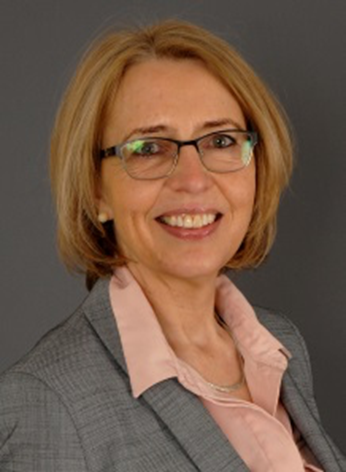Language Centre Summer Conference 2022: Transformation and Transitions in Language Education
- Date
- Wednesday 7 September 2022
We are delighted to now be able to share with you an updated programme with the abstracts for our two plenary speakers for 2022.
Language Centre Summer Conference 2022: Plenary speeches
Opening plenary: Jeff Grabill
First, Jeff Grabill, Deputy Vice-Chancellor for Student Education, will speak on Design for Transformation in Higher Education, a topic which is undoubtedly relevant to all of us.

Jeff Grabill is Deputy Vice Chancellor for Student Education at the University of Leeds. Prior to joining the University of Leeds, Grabill was at Michigan State University (MSU) in the United States for nearly 20 years. He served Michigan State University as the Associate Provost for Teaching, Learning, and Technology. In that role, he was responsible for facilitating innovation in learning and educator professional development via his role as Director of the Hub for Innovation in Learning and Technology. Grabill’s research focuses on how digital writing is associated with citizenship and learning. That work has been located in community contexts, in museums, and in classrooms at both the K-12 and university levels. Grabill is also a co-founder of Drawbridge, an educational technology company.
Design for Transformation in Higher Education
We can and should design the next iteration of higher education. There is no question that we face significant challenges at educators, and we also have remarkable opportunities. How best to realise them? To change institution that are seemingly immovable? This talk will explore a learning design-based approach to transformation grounded in participatory practices that centre the experiences of students and staff. Built around examples of design practices that have produced real outcomes, the talk will explore ways that agency can be shared and distributed to help institutions produce new, more creative, and hopefully better outcomes.
Closing plenary: Dr Ursula Lanvers

Dr Ursula Lanvers is Associate Professor in language education at the University of York. Before this, she worked at the Open University, University of Durham, and University of Exeter. She obtained her first degree at the University of Münster (Germany), a teacher training qualification at the University of Oxford, and PhD at the University of Exeter. She has published extensively on language learner motivation, the language learning landscape in the UK, English medium instruction, and in particular language education policies in the context of Global English. She has a keen interest in discourses around language learning, and uses Critical Discourse Analysis, thematic analysis and Corpus Linguistics.
She adopts a sociolinguistic approach to language education policy, pedagogy of language learning and teaching, and socio-affective effects of global English on language learning, both in Anglophone countries, and in countries affected by Englishization. She has edited a Special Edition in the European Journal of Language Education on lay perceptions of the Englishization of education in Europe. She is first editor of the recent Palgrave edited volume (2021): Lanvers, Thompson & East: Language Learning in Anglophone countries: challenges, practices, ways forward.
Can the learning of languages other than English be saved via language policy? A large-scale investigation of Practice and Policies of Language Learning in Anglophone and non-Anglophone countries.
The problem:
On a global scale, language education policy faces two related problems: the increase of the learning of English as a foreign language and decrease in the learning of other languages. These imbalances lead to increasing unintentional gaps between explicit policy (of multilingualism, and of learning languages other than English) student preferences, and de facto uptake of language learning.
The question:
Can explicit language policy help narrowing this gap, and ensure diversity in uptake and continuation of LOTE? Policy makers in different nations, notably Anglophone and non-Anglophone nations, have developed different answers to the challenge of reconceptualizing rationales for language learning, and safeguarding multilingualism (Cummins, 2021).
The research:
I will first present and explicate my multi-layered comparative approach of my current large-scale project: a critical analysis of the following data:
- declared policies:
-
- MFL curricula demands in the upper secondary school sector and their rationales
-
targeted and
-
debated policies:
-
political discourses (parliamentary and sub-parliamentary debates)
-
public journalistic discourses (publicly accessible printed news)
-
- practised policies: actual uptake figures of MFL study over the last 2 years (of available data)
from the following nations or states with their own MFL policy
Anglophone:
- the 4 UK nations
- Ireland
Non-Anglophone:
- EU advisory MFL policy
- 2 Länder in Germany.
In the second section, I present findings from Ireland on gap between declared, debated and practiced policies.
In conclusion, I return to gaps between explicit, debated and practiced policy in the light of the continuing ‘stampede’ towards English. I propose a new matrix for rationales of MFL study which, so I argue, might offer avenues for safeguarding a diversity in MFL study.
References:
Cummins, J. 2021. Rethinking the Education of Multilingual Learners. A Critical Analysis of Theoretical Concepts. Multilingual Matters.
Lanvers, U., Thompson, A. & East, M. 2021. (eds), Language Learning in the Anglophone countries in the context of global English: challenges, policies, solutions. Palgrave.
Registration and final Call for Papers
We are very much looking forward to both plenaries, which will be recorded and made available to colleagues who have registered for the conference (registration is free for LCS colleagues and open until 5pm on Wednesday 24th August). We are keen to avoid wasting food and drink, so please only register to attend on campus if you definitely intend to come on the day.
If you would like to speak at the conference, the deadline for lightning talks and poster presentations will remain open until 5pm on Wednesday 24th August. See the Call for Papers or contact LCsummerconference@leeds.ac.uk for more information.
Jane Heath, Denise de Pauw and Deirdre McKenna
LC Summer Conference organising committee
